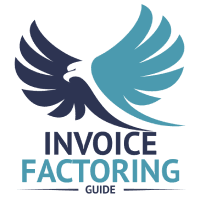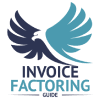Invoice Factoring for Government Contractors
Working as a government contractor can be a two-faced coin, potentially bringing both fortune and frustration. As a government contractor, you know that federal, state, and local government agencies are major clients, offering plenty of opportunities for stable, long-term revenue. However, on the flip side, you will also need a carefully crafted strategy to overcome the cash flow challenges you could face by accepting a government contract.
Whether your contract is for manufacturing or providing a service, you know that you won’t be paid until the job is complete. Yet, you still have overheads and supplies to pay for, as well as higher wages for contractors and workers. Unfortunately, government agencies are known to take at least two to three months to pay their invoices due to all their internal approval processes. You can’t be too pushy in following up on payment, nor can you expect an advance or downpayment before you start the work – these contracts are highly competitive, and the agency could easily choose from any number of other contractors.
So, how do you balance keeping the government contract provider happy while still having enough cash flow to keep your business running? Government contractor factoring.
How Government Invoice Factoring Works for Contractors
Government contracts often involve long payment cycles, which can strain contractors’ cash flow. Government invoice factoring offers a solution by allowing contractors to sell their outstanding invoices to a factoring company in exchange for immediate funds. The factoring company advances a portion of the invoice amount, typically within 24 to 48 hours, helping contractors cover operational costs like payroll and supplies.
The process is straightforward: the contractor submits the invoices to a factoring company, which provides funding based on the creditworthiness of the government agency. Once the government pays the invoice, the factoring company deducts its fee and remits the remaining balance to the contractor. This eliminates the need to wait months for payment, enabling contractors to maintain steady cash flow without taking on debt. Factoring services are particularly helpful for government contractors because they bypass the slow-paying nature of government entities while ensuring funds are available to keep projects on track.
Government Contractor Factoring vs. Bank Loans
Given the lengthy payment turnaround associated with government contracts, it’s clear that financing options like bank loans with similar turnaround times are not the most suitable for government contractors. You need to keep your business running smoothly while waiting for your invoices to be paid. One option to consider is government receivables factoring, which can provide immediate cash flow and take the burden of collections off of your business.
Factoring companies can give you an advance on your unpaid invoices, providing immediate funding to cover expenses like payroll and materials. Unlike bank loans, factoring approvals are based on the creditworthiness of your clients, not your business. Plus, factoring companies often offer collection services, freeing up your time to focus on other areas of your business.
So, if you’re looking for a fast and easy financing option, government contractor factoring may be just what you need!

The Benefits of Government Receivables Factoring
Government receivables factoring is a reliable solution for contractors who need immediate cash flow while waiting on slow-paying government agencies. This financing option allows contractors to convert their government receivables into working capital by selling outstanding invoices to a factoring company. Unlike traditional loans, this type of financing does not add debt to the contractor’s balance sheet, making it a more flexible option.
Factoring provides an immediate influx of cash, helping contractors cover payroll, materials, and other expenses. Additionally, the factoring company assumes responsibility for managing and collecting invoices, reducing administrative burdens, and allowing contractors to focus on their projects. With government receivables factoring, contractors gain the financial flexibility they need to handle ongoing operational costs without being held up by delayed payments from government clients.
Top Financial Challenges in the Government Contractor Industry
On top of the cash flow challenges and slow payment times, there are several challenges that contractors in this industry face:
How to Run a Successful Government Contractors Company
Running a successful government contracting business requires a mix of financial acumen, industry knowledge, and networking skills. Here are some tips for success:
Build a strong financial foundation:
Understand the government contracting landscape:
Develop a strong team:
Financing Options for Government Contractors Companies
When it comes to financing options for government contractors, there are several choices to consider.
A Strategic Tool for Government Contractors
Invoice factoring offers government contractors the chance to improve their operational efficiency. This financial strategy goes beyond managing cash flow; it is about unlocking the potential of unpaid invoices to fuel business growth, streamline operations, and mitigate the administrative burden of collections. By choosing a factoring partner well-versed in the nuances of government contracts—from defense to federal procurement—contractors can ensure their financing strategy aligns with federal agencies’ unique requirements and regulations.
This alignment not only facilitates smoother financial operations but also empowers contractors to focus on core business activities like service delivery, contract acquisition, and compliance with federal regulations. Furthermore, leveraging insights from industry leaders can provide contractors with the market intelligence and strategic guidance needed to navigate the government contracting landscape successfully. By integrating invoice factoring into their financial toolkit, government contractors can position themselves more favorably within the competitive and regulatory environment of government contracting, making sure they can seize opportunities and drive sustainable growth.
Utilizing Opportunities in Federal Contracting
The federal contracting landscape has complexities that require a strategic approach that goes beyond just understanding the basics of government contracts. For businesses eyeing a position among the elite top 10 government contractors or aspiring to break into the exclusive list of top 200 federal contractors, mastering the intricacies of federal procurement becomes important. The role of insightful databases and platforms, such as Bloomberg Government, cannot be overstated in providing contractors with the edge needed to stay ahead. These resources are more than just lists or reports, they are a gateway to understanding the federal market’s fiscal dynamics, procurement trends, and competitive benchmarks.
The shift towards digital and secure sharing of sensitive information has underscored the importance of being adept at navigating federal contracting portals and understanding the regulations that govern federal agencies. With fiscal years bringing new opportunities and challenges, contractors must remain agile, adapting to changes in defense spending, federal procurement policies, and the overarching regulatory environment. It’s not just about winning a contract; it’s about managing it efficiently, from complying with stringent regulations to ensuring timely fulfillment of contract terms.
Moreover, the strategic use of insights from federal contracting reports and databases can illuminate paths to new opportunities, helping contractors identify untapped areas of growth, forecast upcoming trends, and align their business strategies with the government’s fiscal priorities. By leveraging such insights, contractors can better position themselves to win more contracts, navigate the complexities of federal procurement with greater ease, and ultimately, secure a sustainable and profitable future in the competitive realm of government contracting.
While all these options have their benefits, factoring can provide government contractors with the most immediate and accessible cash flow. Plus, with factoring, you don’t have to worry about defaulting on a loan and losing your collateral or having any debt on your balance sheet.
The government contracting industry has many unique and strict challenges to navigate. Therefore, you need a financing partner that understands this industry’s specific regulations, challenges, and opportunities so that your factoring agreement can be tailored to your exact requirements.
Invoice Factoring Guide (IFG) is here to help you find the perfect government contractor factoring partner. Explore our website to learn about industry-specific factoring options, and contact us today for a complimentary rate quote.
Let us help you find the best invoice factoring company for your government contracting business.
Why Healthcare Companies Choose Invoice Factoring
“Our transition has been very smooth and easy.”
“I was completely impressed with their professionalism and customer service.”
“Awesomeness personified. This company saved our business. Instead of having to wait around 2 months for our payments we get them within days.”
“The people there really care about you and I’m very happy with the service I’ve gotten.”
“They give me the fast cash I need and the team there is great. My rep always takes the time to help me out.”
“I had a great experience from the onboarding to the factoring.”
Get an instant funding estimate
Results are estimates based on the calculated rate and the total invoice amount provided.
Actual rates may vary.
Request a Factoring Rate Quote
PREFER TO TALK? Call us at 1-844-887-0300
A Network Featured by the Media






Partners Affiliated with Industry Leaders





